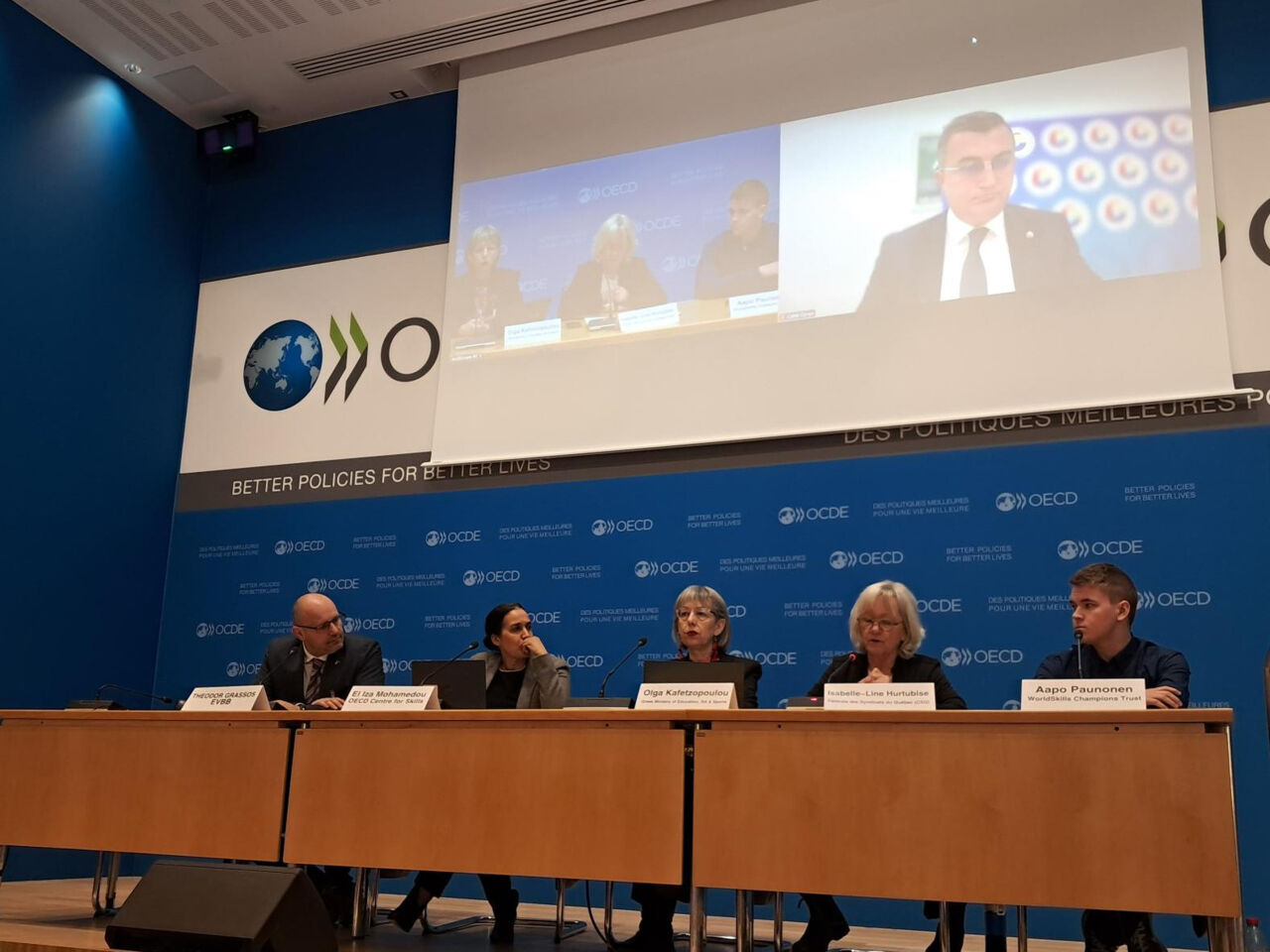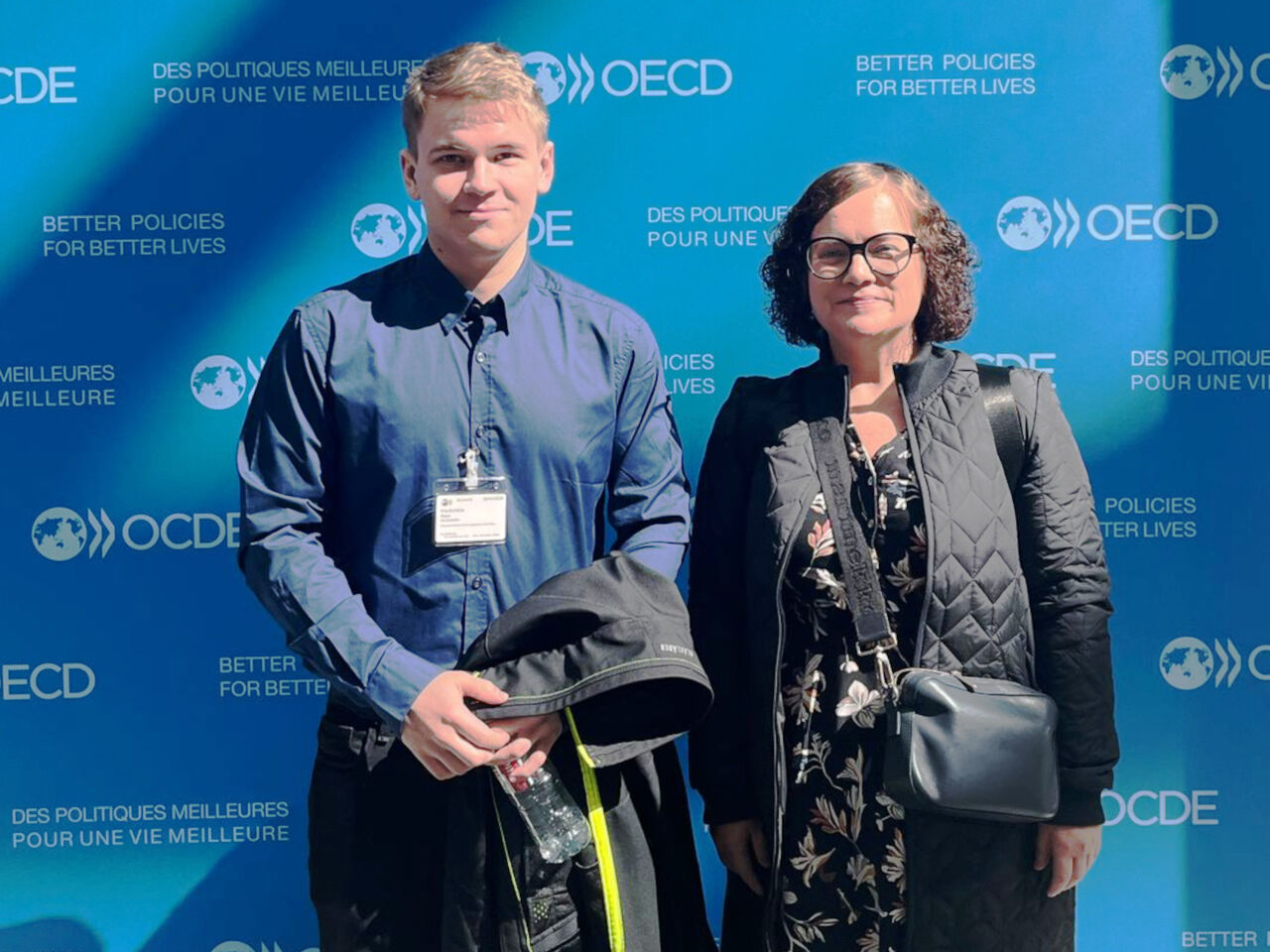9 April 2025
WorldSkills Champions Trust representative advocates for the future of apprenticeships at Cedefop-OECD symposium
The WorldSkills Champions Trust representative for Europe, Aapo Paunonen, was invited to speak at the 2025 joint Cedefop-OECD symposium “New fields for apprenticeship”.

WorldSkills Champions Trust representative for Europe, Aapo Paunonen, took part in the 2025 joint Cedefop-OECD symposium “New fields for apprenticeship”. The event examined the expansion of apprenticeships in sectors and occupations where this type of training was seldom offered, but is now becoming central to apprenticeship-related policies and choices of individuals.
Taking place at the OECD Conference Centre in Paris from 1 to 2 April, the symposium convened policymakers, researchers, practitioners, and learners. Over the two days, they presented research and case studies highlighting how apprenticeships are being introduced in areas such as health, financial services, ICT/digital industries, and teacher education, as well as examples of programmes in traditional sectors like construction, energy, and food industries, which are being revamped to respond to the digital and green transitions.
The symposium concluded with a panel discussion with representatives of governments, employers, trade unions, and Vocational Education and Training (VET) providers. To represent the perspectives of young apprentices was Aapo, drawing from his own experience as an apprentice and a CNC Milling Champion.
Emphasizing the value of apprenticeships, especially in fast-growing and innovative industries, Aapo said that apprenticeships are not only about gaining skills, but about entering the workforce prepared and confident. “You’re not just learning – you’re working in the industry, building professional networks, and understanding what employers expect. In fact, many apprentices secure full-time roles before even finishing their training.”
He added that for any young person serious about entering a future-focused industry, this was a smart, efficient, and rewarding pathway. However, he warned the panel that “to fully unlock this opportunity,” systems should work together to make skills-based careers attractive and accessible to all.

Aapo also addressed a key challenge discussed throughout the symposium: the visibility of apprenticeships in new and emerging fields. While young people are naturally drawn to future-facing industries such as automation, AI, and smart manufacturing, he said many young learners still aren’t aware of the possibility to train through an apprenticeship for these roles.
“The perception gap is real. Apprenticeships are often still associated with traditional trades, not high-tech innovation,” he said, while calling for modernizing storytelling around apprenticeship, particularly in high-tech environments. “We need to do more to promote them as a first-choice option, an equally viable option to academic routes that leads to career fulfilment.”
Aapo’s intervention resonated strongly with the symposium’s broader theme, that modern apprenticeships can and must evolve to meet the demands of 21st-century economies.
The OECD is a partner of WorldSkills. They hold a permanent seat at the WorldSkills Conference Coalition and continue to collaborate in research and assessment projects, such as PISA-VET. Placed at the centre of European cooperation, Cedefop aims at improving vocational education and training through effective policy-making.